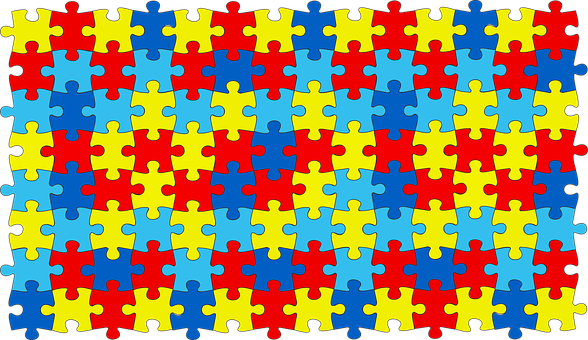Our teenage son still enjoys watching Peppa Pig. He still jumps up from the breakfast table to watch the garbage truck. He sometimes watches washers and dryers run on YouTube. Our son happens to have autism.

Although he collects phone numbers like baseball cards, he rarely uses them. But that phone? That is his pride and joy – he polishes it 20 times a day and cares for it like a newborn baby.
Our son is wickedly smart in some areas, including electronics and board games. But he can’t figure out how to properly blow his nose, tie his shoes or remember his birthday.
And you know what? He is lovely. Quite possibly the best human we know. His brain is simply wired differently and that is part of what makes him… him.
Different for Everyone
Autism Spectrum Disorder (ASD) is a developmental disorder with symptoms that appear within the first three years of life, according to the Autism Research Institute. Unlike other conditions, autism is different for everyone.
World Autism Month begins with the United Nations-sanctioned World Autism Awareness Day on April 2. This year marks the 15th annual World Autism Awareness Day.
Since the ’80s, the rate of autism has increased dramatically around the world. The Centers for Disease Control estimates that 1 in every 44 children in the United States is affected by autism. The condition looks different for everyone. Autism, or autism spectrum disorder (ASD), refers to a broad range of conditions characterized by challenges with social skills, repetitive behaviors, speech and nonverbal communication.
Then and Now
When our son when very young, he wasn’t much different from other kids.
Many of them jumped up and down when they were excited. Many had a little trouble with this academic subject or that one. And many struggled with some sensory issues. But when his friends started to shed some of those characteristics, our child didn’t. He stayed a bit more innocent. A bit more transparent. A bit less, well, typical.
He wasn’t diagnosed with ASD until mid-way through elementary school because he’s affectionate, social, a hard worker and didn’t really have any disruptive behaviors. In fact, on several occasions, his classmates told their parents that they wanted to be more like him because everyone liked him.
As he’s gotten older, that hasn’t changed. He’s like the mayor of his middle school. Everyone knows him. Everyone likes him. But… as his peers develop in a (mostly) straight, diagonal line, his development looks more like a winding path through the woods.
He doesn’t get invited to many birthdays these days. Or to hang with friends very often. It’s not because his old friends are mean – they are wonderful. They just are moving in different directions. We are confident our son will continue to make new friends, as the years pass. He is kind, funny and interesting.
In the meantime, I have two requests:
- Parents… If a child in your kid’s class zags when others zig, please invite that child to events and simply to hang out – when they’re young and when they get older. It might take a little more work to get to know them, but it is worth it!
- Employers… Give humans with autism a shot. It might take a slightly different training method, but that person could end up being among your hardest workers.
Other Moms, on Autism:
https://birmingham.momcollective.com/parenting-perspectives/the-space-in-between-autism-awareness-and-our-story/
https://twincitiesmom.com/my-secret-world-autism-mom/
[I’m a proud mama of a son with autism. I am writing this piece anonymously simply because our son is a teenager and I want him to choose what, when and with whom he shares about his experience with autism.]












